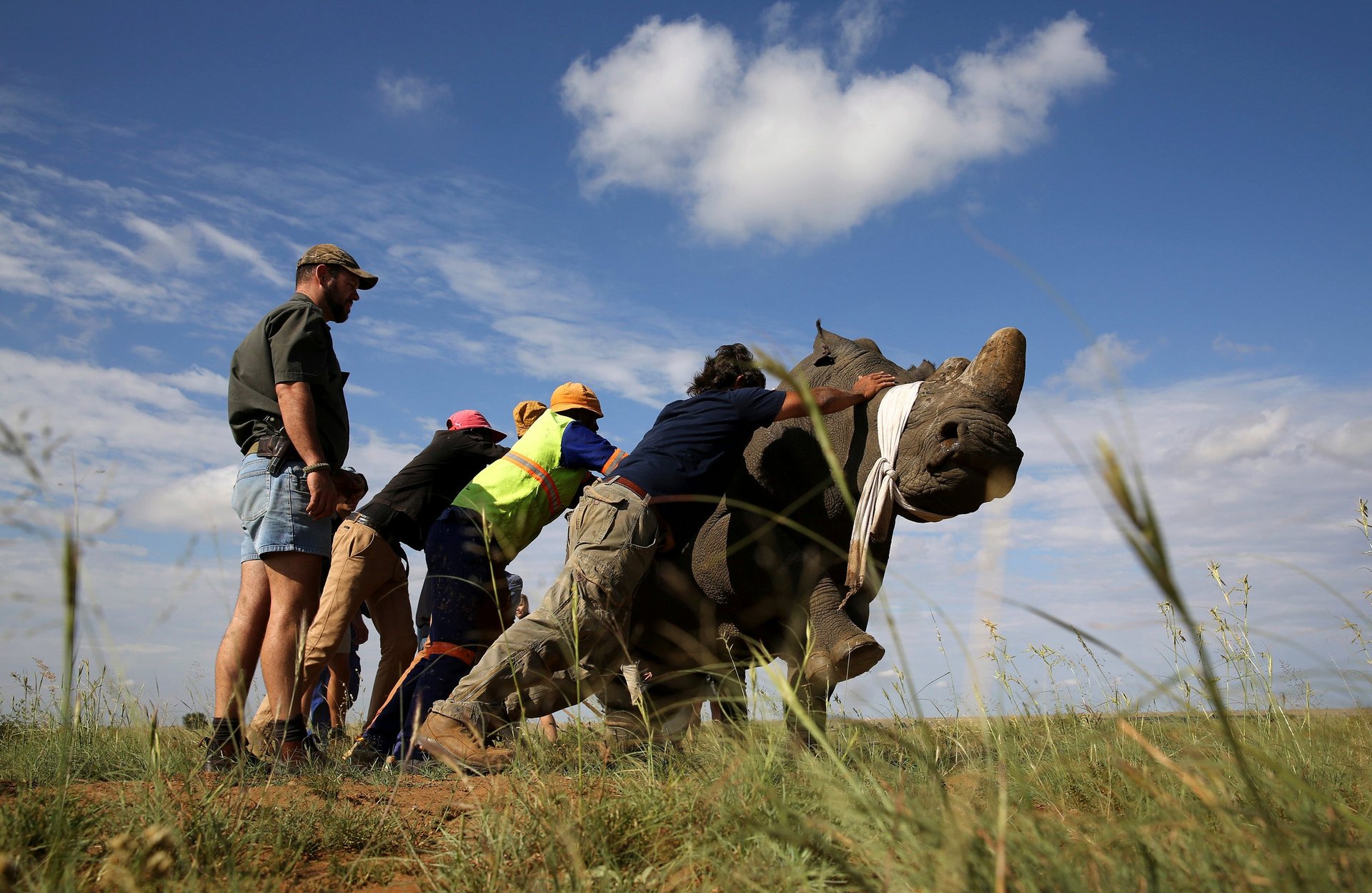Helicopter-rappelling dogs and other innovations being used to save South Africa’s rhinos
Last week, surgeons in South Africa completed a pioneering facial reconstruction operation on Hope, a rhino whose horn was hacked off by poachers last year.


Last week, surgeons in South Africa completed a pioneering facial reconstruction operation on Hope, a rhino whose horn was hacked off by poachers last year.
The procedure stretched Hope’s facial skin over the gaping wound, pulling together muscles and skin using elasticized threads, with the hope that that the sides will eventually grow together to cover the wound. It was performed by members of Saving the Survivors, a group of conservationists who use medical interventions to rescue rhinos who survived being maimed by poachers. This was the first time the “ABRA system,” which is commonly used on humans who have undergone abdominal surgery, is believed to have been used on an animal.
Rhino horns are prized largely in Asian countries for supposedly having medicinal benefits—like curing ailments ranging from hangovers to cancer.
As a result, almost 6,000 African rhinos have been killed by poachers since 2008, according to the International Union for Conservation of Nature. And with the largest population of rhinos in the world, South Africa has become ground zero for poaching.
The threat posed by poachers in South Africa has given rise to a range of techniques, some innovative, others controversial, to try save these animals from extinction.
Rhino farms and sanctuaries are trying anything they can to monitor their animals’ every move, from private security to drone tracking. Canine units are a frequently used anti-poaching tool. An academy just outside of Johannesburg trains dogs specifically for anti-poaching efforts, teaching them to sniff out rhino horns, track poachers and even rappel from helicopters with their trainers.
In a bid to make them less attractive to poachers, rhinos are also frequently dehorned in South Africa. But this has not always been an affective deterrent, with poachers digging out their stumps to get the small amounts of horn growing back.
Some conservationists believe the only hope is simply to take the rhinos away from poaching hotspots. Two wildlife groups are leading an initiative to airlift 80 white rhinos from Southern Africa to Australia. But airlifting rhinos is an intense logistical process, and can’t completely guarantee their survival. It’s also costly—last March, Rhinos Without Borders began a project to airlift 100 rhinos from South Africa to Botswana, at a cost of $45,000 per rhino. The Australia project will cost an estimated $60,000 per rhino, the BBC reports.
Rhino farmer John Hume spends $170,000 a month to protect his 1,200 rhinos, including armed guards in military fatigues, according to the AFP. He is a controversial advocate of legalizing trade in rhino horns worldwide, which he argues will cut down on poaching.
South Africa has struggled with whether or not to advocate for a reversal of the ban on international rhino trade, which has been in place since 1977, deciding only recently that it will not bid to have the ban lifted. A six-year moratorium on trading rhino horn in South Africa was lifted late last year after a court found in favor of arguments that the ban had been ineffective. According to Reuters, no one has applied for a permit to legally trade the horn in South Africa, yet.